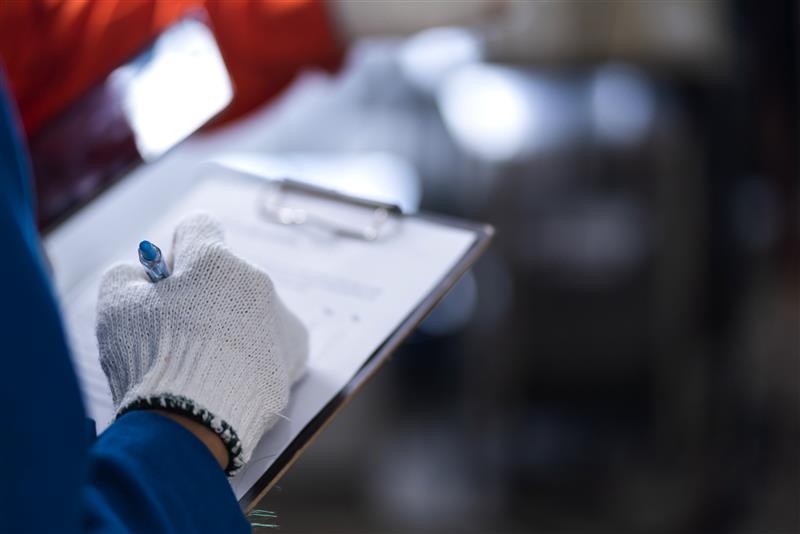How HVAC&R SMEs can win government tenders
Lara Blake from Tenderfy looks at how HVAC&R SMEs can compete – and thrive – against large businesses when it comes to government tendering.

Securing government work can be very attractive for small and medium enterprises (SMEs). Winning a government contract can have many long-term benefits such as ongoing work, industry visibility and building trust among future potential customers and clients.
Unfortunately for many SMEs, the government tender process can be overwhelming, time-consuming, and in some instances quite disheartening.
The reality is that small companies rarely have comparable resources to bigger organisations, and the tendering process can often feel like an uneven playing field. Time and time again, large contracts are awarded to equally large organisations who have sizeable bid-writing teams at their disposal.
The Australian government has committed to providing small businesses with more opportunity to secure contracts, and so far has exceeded its small and medium‑size enterprise (SME) procurement target of 35% of contracts by value from SMEs, for contracts with a value of up to $20 million.
This is a huge step in the right direction. So why does it still feel like SMEs are facing an uphill battle?
The bottom line is small businesses tend to use their whole team to prepare documents and submit complex tenders – taking away from revenue-generating work in the hopes of winning a government contract – while bigger companies have the resources and teams to manage these submissions at scale with ease.
So, what can SMEs in the HVAC&R industry do to ensure they not only compete with these larger players, but actually thrive in the world of government tendering?
Getting tender-ready
If you’ve ever submitted an Australian government tender, you’ll know the layers of complex documentation you typically need to provide. Having a suite of documentation pre-prepared and readily available will assist in streamlining the tender process.
Recommended documentation includes:
1. Company profile and background
Having a strong and compelling company profile along with a polished capability statement that showcases your strengths is a good way to position your business for success.
“Procurement managers often come from diverse backgrounds – without necessarily any experience in HVAC&R – and rely on clear, jargon-free information to make decisions.”
There are many resources and webinars available to assist you in preparing a strong capability statement.
2. Organisational chart and team résumés
Procurement officers will want to see the team assigned to the project, along with their experience and qualifications. Providing a company organisational chart and company branded résumés provides a strong opportunity to present your team effectively.
3. Case studies and evidence of relevant experience
Preparing examples of previous work relevant to the tender is essential. Make sure your project examples are professionally branded, consistently formatted, and clearly demonstrate your ability to deliver on similar scopes of work. Many tenders require at least two examples of projects of a similar size and complexity. You may also be asked to provide referees, so it’s a good idea to have their details ready and confirm they’re happy to be contacted.
4. Insurances
Public liability, professional indemnity, and workers compensation are the standard insurances you’ll need to have any chance of winning a government tender. In the HVAC&R industry, you might also need construction works insurance (also known as contracts insurance).
It’s important to ensure these insurances meet the minimum coverage requirement. This information can generally be found under the mandatory requirements section in the tender.
5. Certifications
ISO certifications such as ISO 9001 are highly regarded and in some cases mandatory, so it’s worth conducting some research into whether investing in an ISO accreditation will benefit your business. Trade licenses, certifications, and industry-specific accreditations are also important to demonstrate; ensure they are up-to-date and keep digital copies in your suite of centralised information.
6. Policies and procedures
Government agencies will expect you to provide everything from your WHS policy to your business continuity plan. Ensure you have a strong and up-to-date company policy framework addressing all facets of your business operations.
All tenders now require that the vendor meet the ethical supplier threshold and pass the supplier diversity and local benefits test.
Compliance
Compliance is one of the biggest hurdles in tendering. Even small oversights like missing a tick box or exceeding a word count can result in a non-compliant submission.
It’s also critical to address every question in the tender, even if it’s not relevant to your business. In those cases, respond with something like: “This question does not apply to us for the following reasons…” to show that you’ve read and acknowledged the requirement.
Government panels
Do your research on government tendering platforms such as Vendor Panel, Local Buy and Australian Tenders. Panel arrangements open regularly, and while acceptance does not always guarantee work, it does ensure your business is visible and on the correct supplier lists for procurement teams. Ensure you are subscribed to daily notifications advising of upcoming tenders, as well as other state- and territory-specific tendering platforms.
Some tenders provide supplier briefing sessions prior to the tender officially going to market. Ensure you register for these – this is your chance to get first-hand, face-to-face information about the tender and reach the procurement team on a personal level.
Hot tips
It’s important to ensure all your documentation is prepared with consistent company branding. While this may seem like a minor detail, a cohesive and clean set of documents conveys professionalism and good organisation, making a positive impression from the outset
It’s also important to centralise all your key information, such as your suite of documentation listed above. This will save time, ensure consistency, help team members work together efficiently, and reduce duplication across your tenders.
Embrace the tech!
A common pain point in tendering is reworking the same document over and over again. Using tender management software or automation tools can assist in eliminating repetitive tasks, maintaining compliance, and improving your submission quality at scale.
There are now many software solutions readily available, whether it’s a simple request for proposal (RFP) response tool that uses AI to prepare responses, or an all-in-one software as a service (SaaS) platform that allows you to complete the whole tender in one application.
Some AI-powered software tools can read over the tender documents and pull important information that will help you decide whether the tender is the right fit for you. After all, not every tender is worth your time pursuing.
These tools will streamline your process and speed up the time it takes to prepare the tender.
“Embrace the tech – your competitors certainly are!”
Leveraging partnerships
Leveraging partnerships and maintaining a presence at industry events is a smart move. There are many conferences, roadshows, and networking opportunities where companies can engage directly with government representatives. Staying consistently visible helps build relationships, strengthens your reputation, and can lead to valuable contract opportunities.
Get a debrief
The chances are you are not going to win your first tender, and this can be disheartening given the amount of time and preparation involved. If you are unsuccessful, you are entitled to a debrief – always ensure you get this to find out where your weaknesses were and what you could do better next time.
A typical debrief involves a meeting with the procurement officer who sent the tender out. This can be done via phone, email or face to face.
Final thoughts
Government tendering can feel daunting, but with the right preparation, processes, and tools, HVAC&R SMEs are in a strong position to compete and win. Start small, stay consistent, and don’t underestimate the power of a well-prepared bid!
About the author
Lara Blake is the Partnership Development Manager at Tenderfy, a provider of tender management software, where she drives strategic growth, fosters partnerships, and champions digital solutions. With extensive experience across tech, SaaS, and government sectors, Lara is passionate about simplifying complex processes and helping businesses accomplish more with smart technology.


PREV
NEXT
Comments
Advertisements
Recent news
- February–March issue of HVAC&R News out now
- Reliable Controls marks 40-year milestone
- Conex Banninger and Reese launch enhanced fitting range
Latest events
- The path ahead for the VEU – industry webinars
- Additional keynote announced for HVAC26
- PSO to host focus groups at AIRAH Hobart Industry Night
 Lara Blake
Lara Blake

Leave a Reply